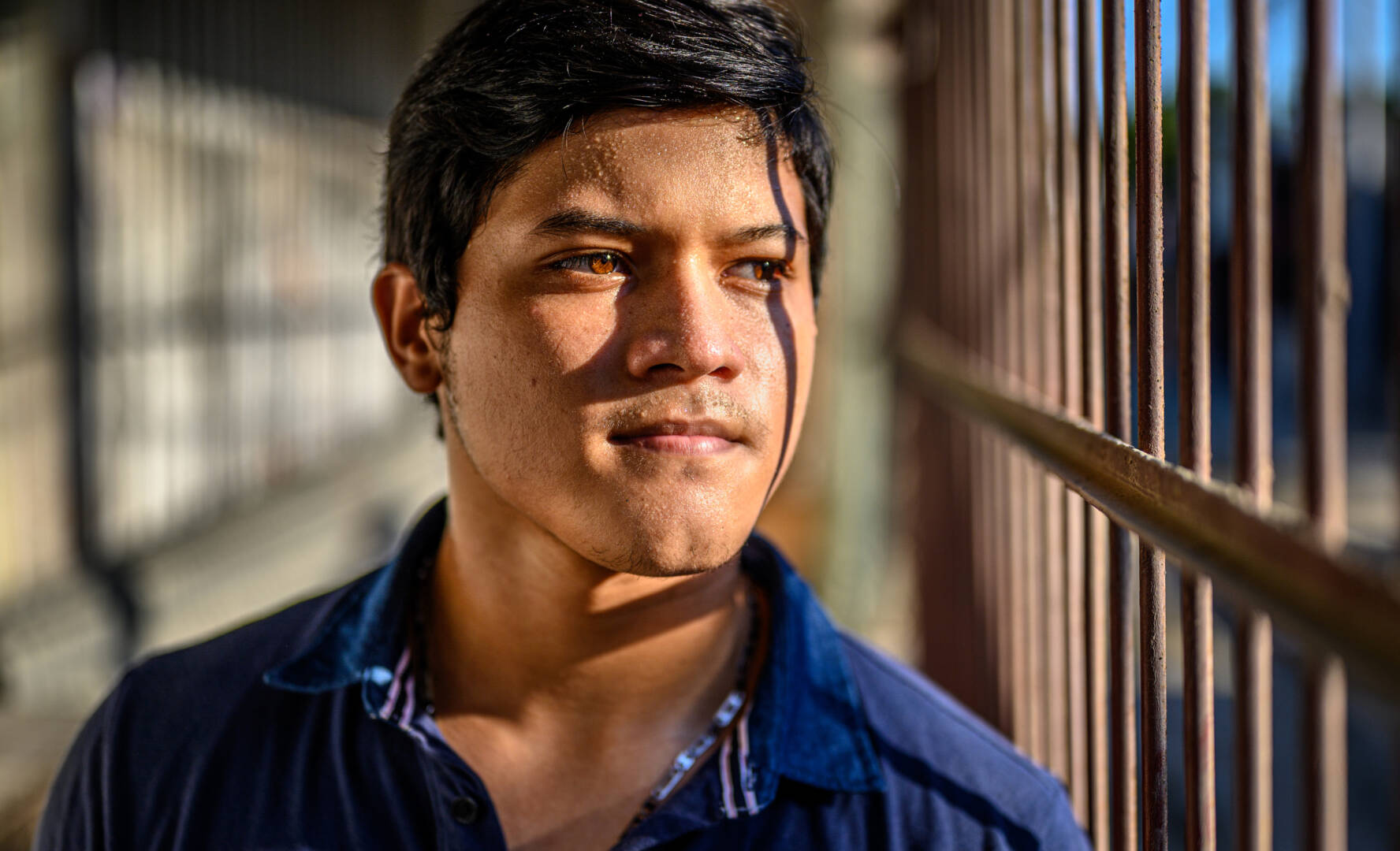Strong women are everywhere in Honduras. Melisica is strong. She’s had to be for her son, Jordy.
Melisica got pregnant with Jordy when she was a teenager. The father left when Jordy was two months old, so she raised him with the help of her own parents, especially her father. When Jordy was 12, his grandfather died. Jordy was devastated because he’d been like a father. He’d protected Jordy from the gangs.
Jordy gave up. He started goofing off, playing soccer in the streets instead of studying. Twelve years old and at risk, he was a prime target for the gangs that control the neighborhoods of San Pedro Sula. Melisica knew the signs. She’d already lost a brother to gang violence — he’d been shot five times in the face and twice in the abdomen.


Deadly violence
Last year, Honduras was once again Central America’s deadliest country with an alarming rate of almost weekly massacres where three or more people are killed. The murders are usually related to gang disputes. The department, or state, where San Pedro Sula is located, had the most massacres. It’s a stronghold of a gang called MS13. They control neighborhoods through violence and sell and traffic drugs.

In the middle of it all, mothers like Melisica are trying to raise their sons to survive their childhoods.
“Jordy had every reason to join a gang,” she said. “He was out of control when his grandpa died. When we lost Grandpa, the only way we could get through this was with God’s help.”
Gang territory

God’s help was there — waiting in the form of Pastor Raul David Vasquez.
Raul David pastors a church in one of San Pedro Sula’s gang-controlled neighborhoods. You can tell by small signs that gangs are there: MS scratched into a wall, a pair of tennis shoes hanging over a power line to show where one gang’s control ends and another begins. The gangs work 24-7, working in shifts assigned by a “godmother.” She acts as their project manager, making sure every hour is covered by one of the teenagers who takes what they want through violence, aided by jainas, their girlfriends, and “mothers” — in quotation marks — who take care of their every need. It’s a well-oiled system that becomes attractive to kids who see no hope for the future and crave connection to some kind of family.
But there is hope inside Pastor Raul David’s church. It’s a hope you can see and hear.
A welcoming place
Melisica saw it as she stood outside, peeking in through the doorway. She saw dancing — girls raising tambourines high and boys performing intricate dance steps. She heard it in song — a rocking band with a lead singer enthusiastically belting praise and worship. Pastor Raul David stands at the back of the church for the first hour of each service — a fun, faith-filled frenzy — to welcome those who pause at the door. He welcomed Melisica one night about five years ago and her world changed.

The next time she went to church, she looked for Jordy, who was playing soccer. “Come with me,” she said. And he did, going to church and ultimately joining a World Vision youth club where he learned moral values and put his faith into action — helping clean up a playground that used to be a garbage dump so kids could have a safe place to play.
He’s been there ever since, joining the praise and worship group, teaching a Bible study, taking courses in leadership training, and watching his family’s life change. Melisica is engaged and has a new baby whom the family adores. Jordy is planning on going to university. He knows how to say “No” to gangs now. Melisica is so proud of her son. He’s becoming a fine man.
And Pastor Raul David continues to wait at the door for more mothers like Melisica and sons like Jordy, welcoming people in.


Providing solutions
It’s not just about praise and worship anymore, he says. While more than 85% of Hondurans identify as Christian, the local churches don’t always have the resources to take action against violence.
Parents enroll in Parenting with Tenderness classes, which Pastor Raul David took himself. He, too, had been left by his father as a boy. In taking the classes, Pastor Raul David learned how to hug his children.
Soon Jordy will become part of Youth Ready, a program envisioned by donors in Texas with an inspiration for creating education, employment, or entrepreneurial opportunities for Honduran youth.
World Vision works alongside churches to create a better future, but also to help people who are hurting in the present. Pastor Raul David’s church reached out to people made homeless by killer Hurricanes Iota and Eta with supplies provided by World Vision. Even the pastor had to take shelter inside the church for more than a month.

Raul David calls his partnership with World Vision “groundbreaking.” “It has revolutionized my thoughts,” he says. “As a pastor and a person, it has empowered me. It has taught me to see beyond.” The pastor, initially reluctant to partner with World Vision, now takes advantage of the programs funded by Every Last One donors.
“Now we are a ministry, we are a church that gives a prayer service but also provides a solution to people’s lives.”
Those solutions are keeping kids like Jordy out of gangs and giving mothers like Melisica the strength they need to raise thriving children in a troubled neighborhood.
